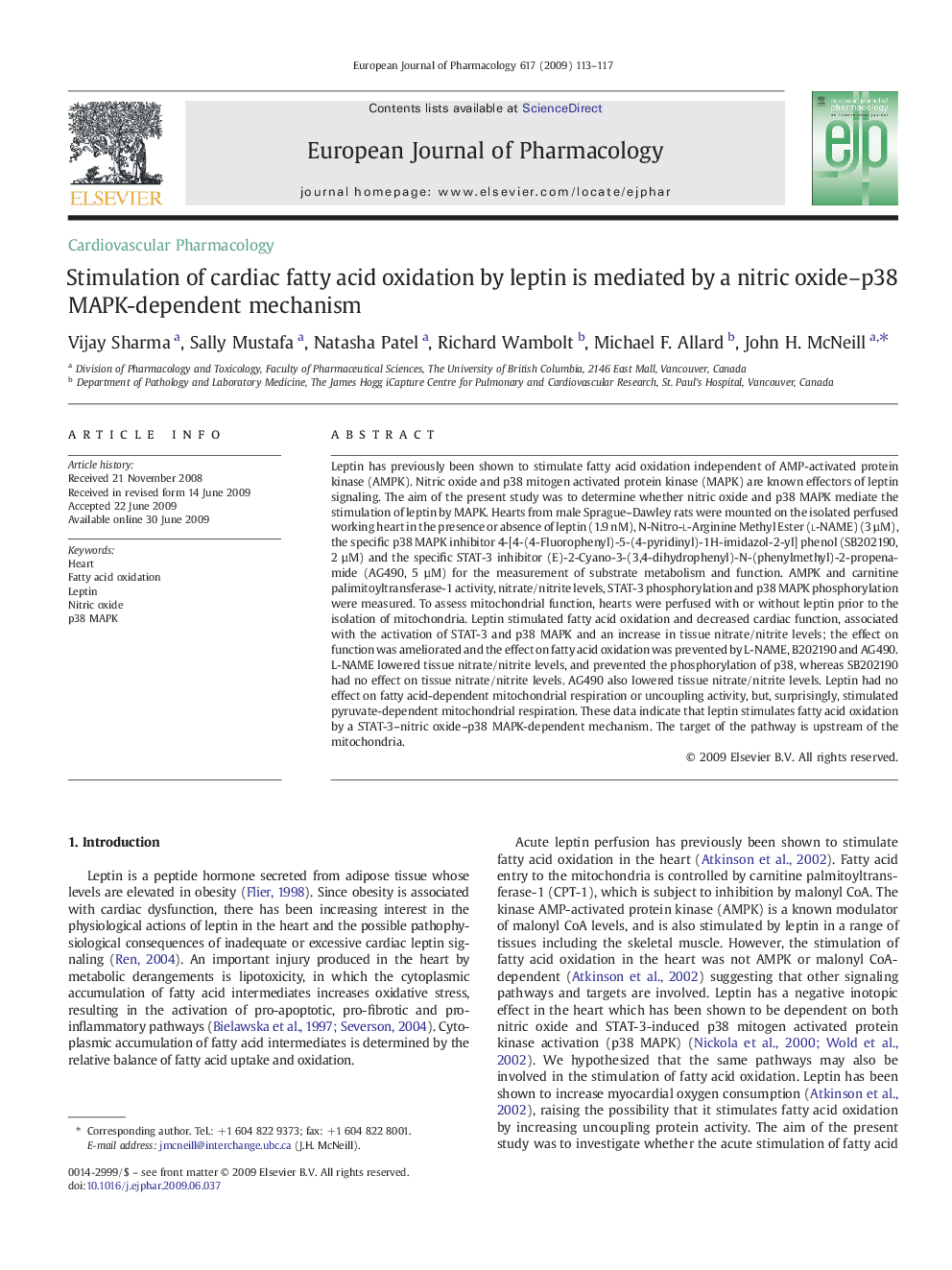| Article ID | Journal | Published Year | Pages | File Type |
|---|---|---|---|---|
| 2534082 | European Journal of Pharmacology | 2009 | 5 Pages |
Leptin has previously been shown to stimulate fatty acid oxidation independent of AMP-activated protein kinase (AMPK). Nitric oxide and p38 mitogen activated protein kinase (MAPK) are known effectors of leptin signaling. The aim of the present study was to determine whether nitric oxide and p38 MAPK mediate the stimulation of leptin by MAPK. Hearts from male Sprague–Dawley rats were mounted on the isolated perfused working heart in the presence or absence of leptin (1.9 nM), N-Nitro-l-Arginine Methyl Ester (l-NAME) (3 µM), the specific p38 MAPK inhibitor 4-[4-(4-Fluorophenyl)-5-(4-pyridinyl)-1H-imidazol-2-yl] phenol (SB202190, 2 µM) and the specific STAT-3 inhibitor (E)-2-Cyano-3-(3,4-dihydrophenyl)-N-(phenylmethyl)-2-propenamide (AG490, 5 µM) for the measurement of substrate metabolism and function. AMPK and carnitine palimitoyltransferase-1 activity, nitrate/nitrite levels, STAT-3 phosphorylation and p38 MAPK phosphorylation were measured. To assess mitochondrial function, hearts were perfused with or without leptin prior to the isolation of mitochondria. Leptin stimulated fatty acid oxidation and decreased cardiac function, associated with the activation of STAT-3 and p38 MAPK and an increase in tissue nitrate/nitrite levels; the effect on function was ameliorated and the effect on fatty acid oxidation was prevented by L-NAME, B202190 and AG490. L-NAME lowered tissue nitrate/nitrite levels, and prevented the phosphorylation of p38, whereas SB202190 had no effect on tissue nitrate/nitrite levels. AG490 also lowered tissue nitrate/nitrite levels. Leptin had no effect on fatty acid-dependent mitochondrial respiration or uncoupling activity, but, surprisingly, stimulated pyruvate-dependent mitochondrial respiration. These data indicate that leptin stimulates fatty acid oxidation by a STAT-3–nitric oxide–p38 MAPK-dependent mechanism. The target of the pathway is upstream of the mitochondria.
